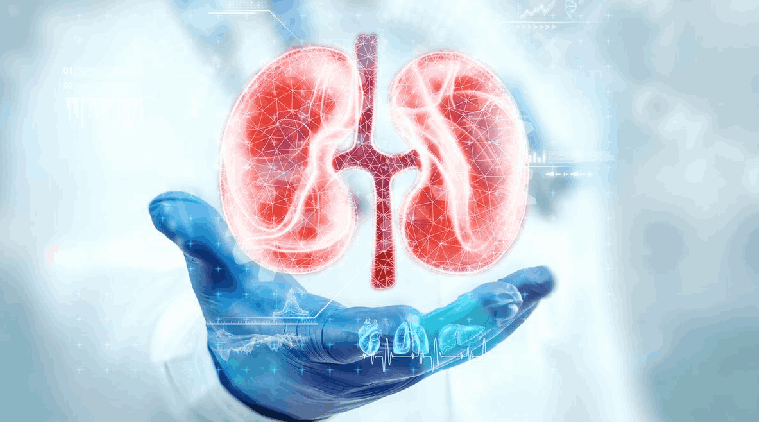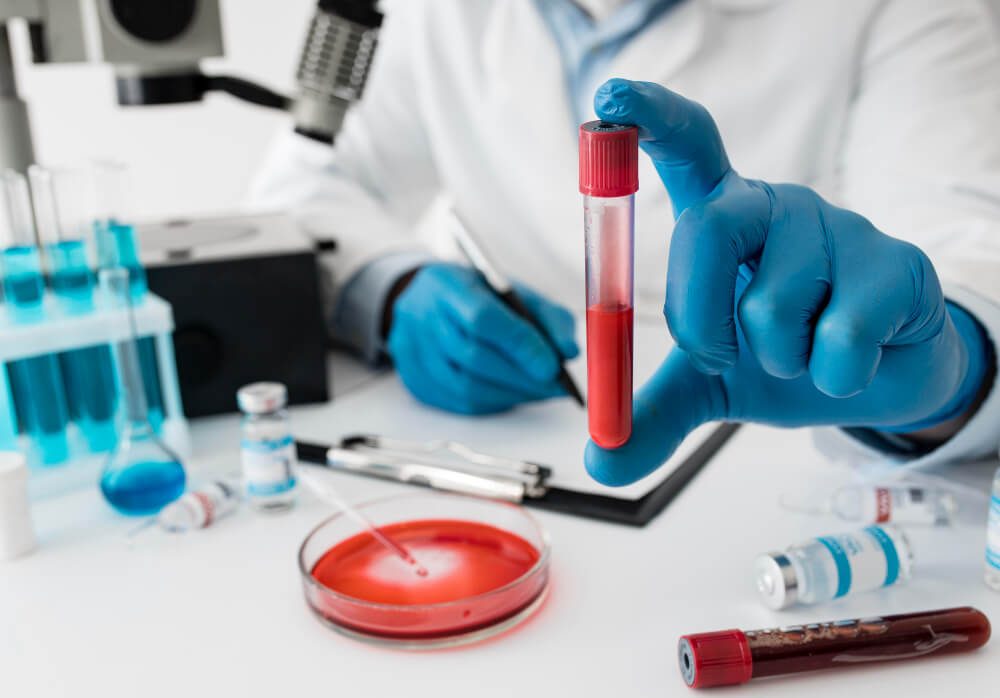Understanding Kidney Disease: Symptoms, Treatment Options, and Taking Control of Your Health
Your kidneys are two bean-shaped organs located near your lower back. They play a vital role in keeping your body healthy by filtering waste products, balancing fluids, and producing hormones. However, when kidneys become damaged, their ability to perform these functions is compromised, leading to kidney disease.

What is Kidney Disease?
Kidney disease is a general term for a group of conditions that damage your kidneys and gradually reduce their function. In its early stages, kidney disease may not cause any noticeable symptoms. However, as the disease progresses, waste products and fluids can build up in your body, leading to various health problems.
There are two main types of kidney disease:
- Chronic kidney disease (CKD): This is a gradual loss of kidney function over time. It often develops slowly and can eventually lead to kidney failure, where your kidneys can no longer function on their own.
- Acute kidney injury (AKI): This is a sudden and rapid decline in kidney function. It can be caused by various factors, such as severe infection, dehydration, or blockage of the urinary tract.
Causes of Kidney Disease
Several factors can contribute to the development of kidney disease. Here are some of the most common causes:
- Diabetes: High blood sugar levels can damage the blood vessels in your kidneys, leading to CKD.
- High blood pressure: Uncontrolled high blood pressure can also damage the blood vessels in your kidneys.
- Glomerulonephritis: This is an inflammation of the tiny filters in your kidneys that can be caused by various factors, including infections and autoimmune diseases.
- Polycystic kidney disease (PKD): This is a genetic condition that causes cysts to develop in your kidneys. These cysts can damage healthy kidney tissue.
- Urinary tract infections (UTIs): Repeated UTIs can increase your risk of developing CKD, particularly if the infections are not treated promptly.
- Autoimmune diseases: Certain autoimmune diseases, such as lupus, can attack the kidneys.
- Congenital abnormalities: Some people are born with abnormalities in their urinary tract that can lead to kidney problems.
- Certain medications: Long-term use of some medications, such as nonsteroidal anti-inflammatory drugs (NSAIDs) and pain relievers, can damage the kidneys, especially if you have underlying risk factors.
Symptoms of Kidney Disease
Early stages of kidney disease often present with no noticeable symptoms. However, as the disease progresses, you may experience some of the following:
- Changes in urination: This can include frequent urination, especially at night, blood in your urine, or difficulty urinating.
- Fatigue and weakness: This is due to a buildup of waste products in your blood.
- Loss of appetite: This can be caused by a buildup of waste products or changes in hormone levels.
- Nausea and vomiting: This can also be caused by a buildup of waste products in your blood.
- Swelling in your hands, feet, and ankles: This is caused by excess fluid buildup due to impaired kidney function.
- High blood pressure: Kidney disease can contribute to high blood pressure, or high blood pressure can worsen kidney disease.
- Trouble sleeping: This can be caused by various factors, such as frequent urination at night or feeling restless due to illness.
- Itchy skin: This can be caused by a buildup of waste products in your blood.
- Poor concentration and trouble thinking: This can be caused by a buildup of waste products in your blood affecting the brain.
- Shortness of breath: This can occur if fluid builds up in your lungs.
Diagnosing Kidney Disease

Early detection of kidney disease is crucial for managing the condition and preventing further complications. Your doctor may use various tests to diagnose kidney disease, including:
- Blood tests: These tests measure the levels of waste products in your blood, such as creatinine and urea nitrogen. They can also assess your kidney function.
- Urine tests: These tests can check for abnormal levels of protein, blood, or sugar in your urine.
- Imaging tests: X-rays, ultrasounds, or CT scans can help your doctor visualize your kidneys and check for abnormalities.
- Kidney biopsy: In some cases, your doctor may recommend a kidney biopsy to take a small tissue sample from your kidney for further examination under a microscope.
Treatment Options for Kidney Disease
Lifestyle Modifications
- Diet: Following a kidney-friendly diet is crucial for managing kidney disease. This typically involves limiting protein, sodium (salt), potassium, and phosphorus intake. A registered dietitian can help you create a personalized meal plan that meets your nutritional needs and supports your kidney health.
- Exercise: Regular physical activity can help improve overall health, manage blood pressure, and control blood sugar levels, all of which are beneficial for kidney function.
- Weight Management: Maintaining a healthy weight can reduce stress on your kidneys and improve your overall health.
- Smoking Cessation: Smoking can further damage your kidneys and accelerate the progression of kidney disease. Quitting smoking is one of the most important lifestyle changes you can make.
- Managing Stress: Chronic stress can contribute to high blood pressure, which can worsen kidney disease. Relaxation techniques like deep breathing meditation or yoga can help manage stress.
Medication
- Blood pressure medication: Medications can help lower your blood pressure and reduce the strain on your kidneys.
- Diabetes medication: If you have diabetes, managing your blood sugar levels with medication is crucial to protect your kidneys.
- Diuretics: These medications help your body get rid of excess fluid by increasing urine output.
- Erythropoietin (EPO): This medication helps your body produce red blood cells, which can be helpful if you have anemia due to kidney disease.
- Phosphate binders: These medications help bind excess phosphorus in your digestive system, preventing it from being absorbed into your bloodstream.
Dialysis
When your kidneys can no longer function on their own, dialysis is a treatment option that removes waste products and excess fluid from your blood. There are two main types of dialysis:
- Hemodialysis: During hemodialysis, your blood is circulated outside your body through a machine with a special filter (dialyzer) that removes waste products and excess fluid. This treatment typically takes several hours and needs to be done three times a week in a dialysis center or at home.
- Peritoneal dialysis: This type of dialysis uses the lining of your abdomen (peritoneum) as a natural filter. A sterile dialysate solution is cycled into your abdomen through a catheter, absorbs waste products and excess fluid, and is then drained. There are different types of peritoneal dialysis, allowing for treatment flexibility, including options for overnight dialysis while you sleep.
Kidney Transplant
A kidney transplant is a surgical procedure where a healthy kidney from a deceased or living donor is transplanted into your body. This is the most effective treatment option for kidney failure and can offer improved quality of life and increased life expectancy compared to dialysis. However, kidney transplantation requires lifelong medications to suppress your immune system and prevent rejection of the donor kidney.
Supportive Care
In addition to the treatments mentioned above, supportive care plays a vital role in managing kidney disease. This may include:
- Nutritional counseling: A registered dietitian can help you create a personalized meal plan to meet your specific needs and manage your kidney disease.
- Pain management: Kidney disease can cause pain and discomfort. Your doctor can work with you to manage pain effectively.
- Social support: Talking to a therapist or joining a support group can provide emotional support and help you cope with the challenges of living with kidney disease.
Clinical Trials
Clinical trials are research studies that evaluate new treatments for kidney disease. Participating in a clinical trial can offer access to potentially life-saving treatments.
Living with Kidney Disease
Kidney disease can be a life-altering condition, but with proper treatment and lifestyle modifications, you can live a long and fulfilling life. Here are some tips for living well with kidney disease:
- Partner with your healthcare team: Regular communication with your doctor and other healthcare professionals is crucial for managing your kidney disease and preventing complications.
- Follow your treatment plan: Taking medications as prescribed, following a healthy diet, and adhering to your dialysis schedule are essential for managing your kidney disease.
- Stay informed: Learn as much as you can about your condition and treatment options.
- Take care of your mental health: Living with a chronic illness can take a toll on your mental well-being. Don’t hesitate to seek help from a therapist or counselor to manage stress and cope with the challenges of kidney disease.
- Connect with others: Talking to other people with kidney disease can provide support and encouragement. Consider joining a support group or online community for people with kidney disease.
